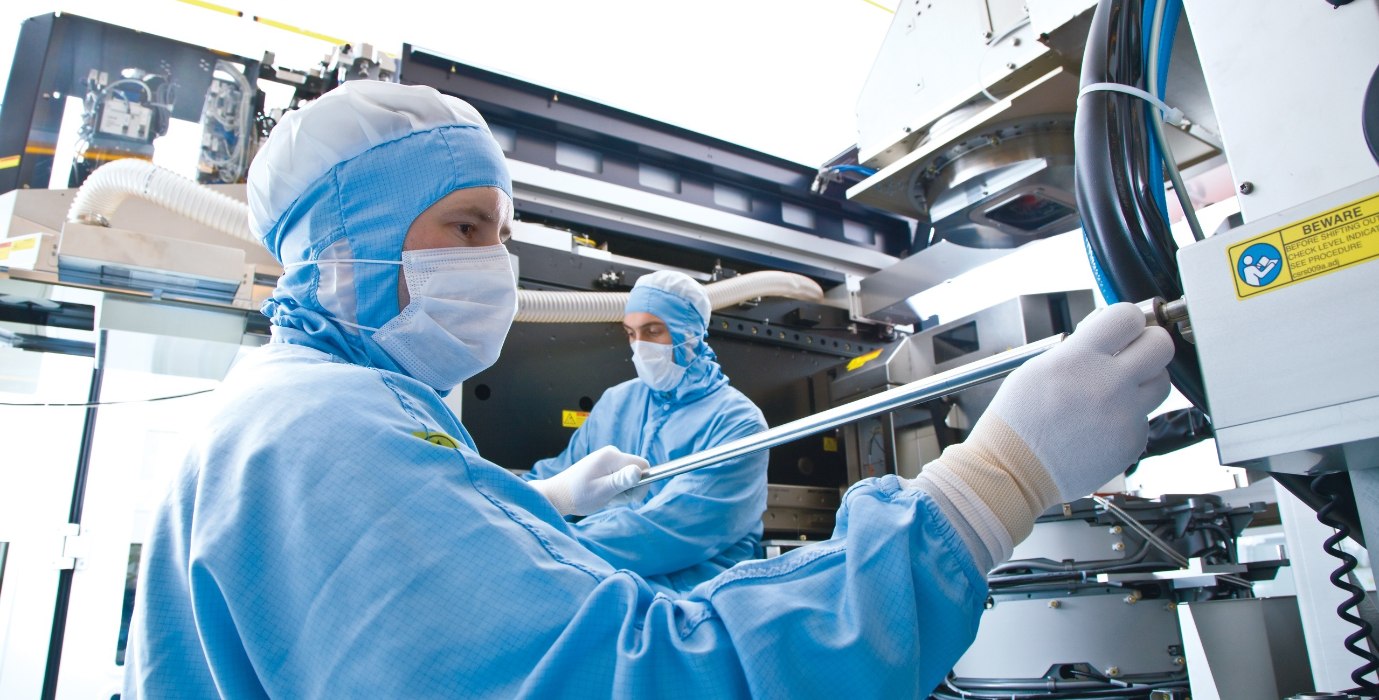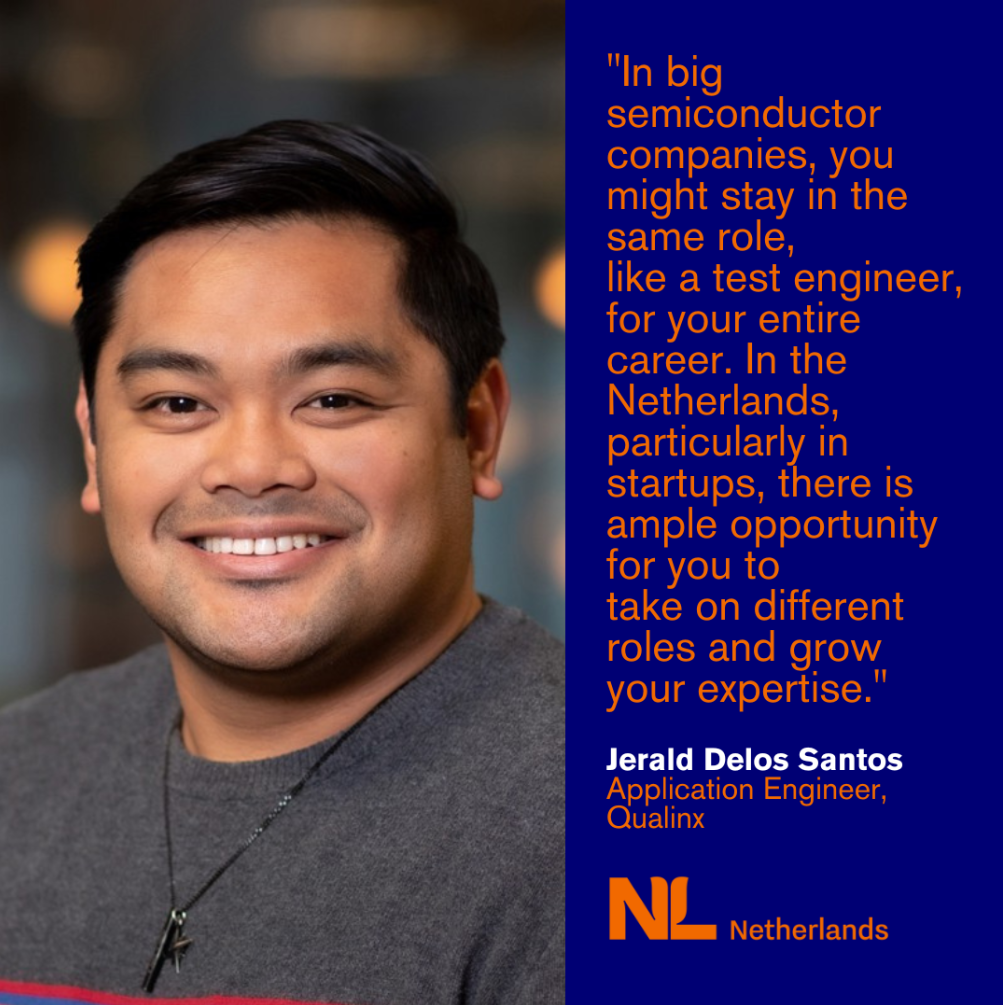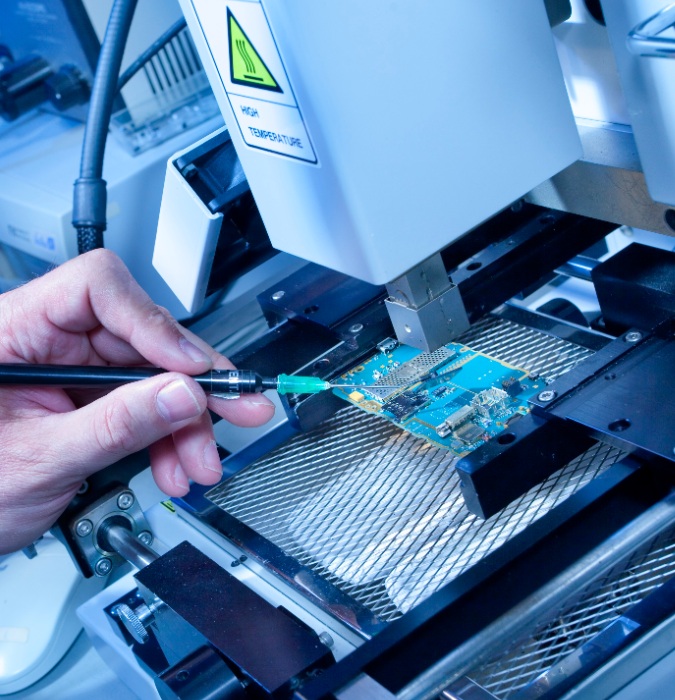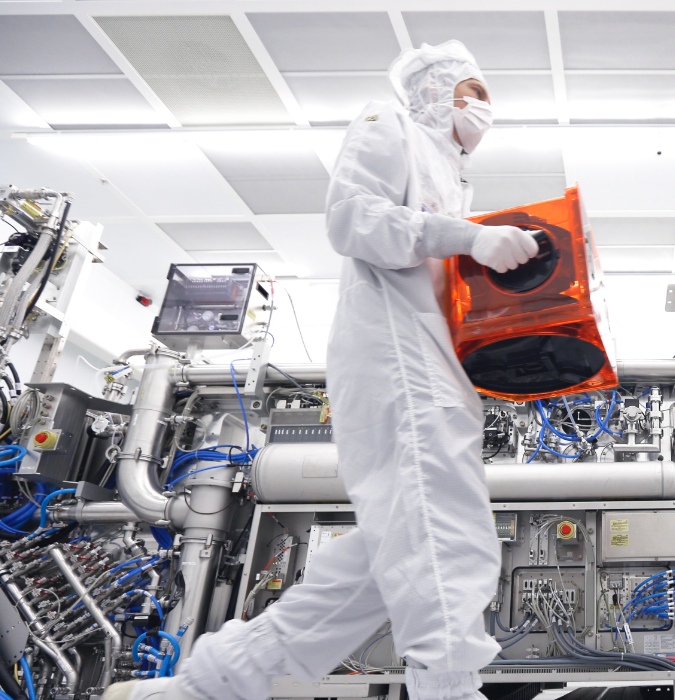Working in the Semiconductor industry
Quickly go to
- Qualifications & University Programmes
- Available Roles
- Importance of Product Management
- Role of Technical Sales
- Key Dutch Regions
- Entrepreneurship
- Start your career in the Netherlands!
- More on semiconductor in NL

Qualifications & University Programmes
Dutch universities offer specialised semiconductor programs to prepare students for careers in the high-tech sector:
HAN University of Applied Sciences: In partnership with CITC, NXP, Nexperia, Ampleon, TU Delft, and TNO, HAN offers a Semiconductor Packaging Program with a blend of theory and practical training in chip packaging.
University of Twente: Through its Master’s specialisation in Semiconductor Devices & Technology, this program covers sustainable design and fabrication within electrical engineering.
Other Institutions: TU Delft and Eindhoven University of Technology also provide courses and specialisations relevant to the semiconductor field.
These programs combine theoretical knowledge with hands-on experience, with many universities offering PhD options for advanced study.
Available Roles
The semiconductor industry in the Netherlands offers a wide range of technical roles, including but not limited to:
Engineering and Technical Roles: Positions such as IC Design Engineer, Analog and Mixed-Signal IC Design, Semiconductor Process Engineer, and Reliability and Failure Analysis.
Research and Development: There are opportunities in R&D centers, particularly in companies like ASML, NXP Semiconductors, and ASM International, which focus on cutting-edge semiconductor technologies.
Manufacturing and Production: Roles in semiconductor fabrication, packaging, and testing, often requiring hands-on technical skills.
The semiconductor industry in the Netherlands requires a blend of technical and business skills. While technology development is crucial, product management and technical sales roles are becoming increasingly important.
“In deep tech, there’s a tendency to invent a technology and then look for the problem it solves. In reality, you should design the technology around the problem. So roles like product management and technical sales are crucial.”
Del Maffeo, CEO, Axelera AI
Importance of Product Management
Product management connects tech with real market needs, ensuring products hit the mark, get to market quickly, and stay relevant. In semiconductors, for instance, product managers shape AI chip development for specialised fields like healthcare or automotive. It’s a great way to leverage technical skills to drive market success for skilled immigrants.
Role of Technical Sales
Technical sales combine sales skills with in-depth tech knowledge to showcase a product’s value, customise solutions, and relay valuable feedback to the product team. For instance, a technical sales engineer at Axelera AI might highlight how their AI chip enhances medical image processing locally, a big plus for healthcare privacy. Engineering-skilled immigrants can excel here by aligning products closely with client needs, driving satisfaction and product success.
Product management and technical sales help shift sectors like semiconductors and AI from a “technology-first” to a “problem-first” approach, focusing on what clients need. These roles make innovations more relevant, ensuring tech meets real-world demands and speeds up market adoption. For skilled immigrants, they offer meaningful paths to drive innovation and practical impact in Dutch tech, aligning advanced tech with real applications.
In addition to technical positions, there are also opportunities in project management, quality assurance, supply chain logistics, business development, sales, and marketing, ensuring there’s a role for professionals with a business background and diverse skill sets. The industry’s growth means new roles are continually emerging, particularly in AI integration and sustainable practices.
Key Dutch Regions
Several Dutch regions are prominent semiconductor hubs:
Eindhoven (Brainport): Known as "Europe’s Silicon Valley," Eindhoven hosts key players like ASML and NXP Semiconductors, with strong government support for the chip industry.
Nijmegen: Home to the Noviotech Campus, focusing on semiconductor packaging technologies.
Delft and Rotterdam-The Hague region: hosts an active Semicon ecosystem, combined with Quantum industry in QUST. Specialties include the development of advanced semicon measurement systems at Nearfield Instruments (Rotterdam) and ASML Delft, Semicon R&D at TU Delft and TNO in Delft and a diverse supplier industry, including IC design.
Enschede: Specialises in sensor technology and mechatronics.
Twente: An innovation centre for nanotechnology and photonics, hosting startups and research institutions in advanced materials and integrated circuits.
Groningen: Focused on sustainable semiconductor technologies, with companies like SHINE and NTS Norma bolstering ASML’s supply chain.
Amsterdam: Known for fintech and software, it is now a central region for semiconductor research, which benefits from access to talent and a collaborative startup ecosystem.


Entrepreneurship
The Netherlands is an attractive environment for entrepreneurs looking to start semiconductor-related ventures. The country’s supportive startup ecosystem offers ample opportunities for tech startups, including incubators, accelerators, government-backed grants and venture capital firms that invest in promising companies. Notable startups include Aito, Nearfield Instruments, EFFECT Photonics, Axelera AI, Qblox, Qualinx, Innatera and SMART Photonics.
“In big semiconductor companies, you might stay in the same role, like a test engineer, for your entire career. In the Netherlands, particularly in startups, there is ample opportunity for you to take on different roles and grow your expertise.”
Jerald Delos Santos, Application Engineer, Qualinx
While the Netherlands offers a stable environment for semiconductor companies, there is a risk of losing the entrepreneurial spirit that drives innovation. According to Fabrizio, the mindset to go fast and build and rebuild, which is more common in the U.S., might be lacking because the system works well and everything is well-structured.
“We miss the entrepreneurs who have scaled companies and dealt with the chaos and speed that come with it. The Netherlands should find a way to attract European talent from Silicon Valley to help in this area.”
Del Maffeo, CEO, Axelera AI
Whether you’re developing AI-powered chips or energy-efficient technologies, Dutch entrepreneurship initiatives such as TechLeap, HighTechXL, and the High Tech Campus Eindhoven provide resources and networking opportunities for semiconductor innovators.
Start your career in the Netherlands!
- Welcome to NL Job portal
More on semiconductor in NL
To dive deeper, explore our articles on the Dutch semiconductor industry and the 10 most important trends.


